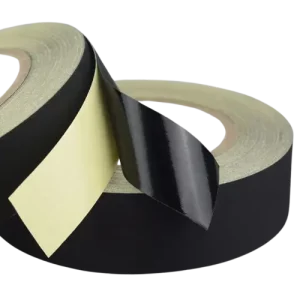
# Self-Adhesive Tape for Versatile Applications
## The Power of Adhesive Tape in Modern Life
Self-adhesive tape has become an indispensable tool in both industrial and household settings. From packaging to crafting, this versatile material offers countless solutions for everyday challenges. The invention of adhesive tape revolutionized how we approach temporary and permanent bonding needs.
## Understanding Self-Adhesive Tape Technology
At its core, self-adhesive tape consists of three main components:
– Backing material (paper, plastic, or fabric)
– Adhesive layer
– Release liner (in some cases)
The adhesive properties are carefully engineered to provide the right balance between stickiness and removability for specific applications. Modern manufacturing techniques allow for precise control over these characteristics.
## Common Types of Self-Adhesive Tapes
### 1. Packaging Tape
Designed for sealing boxes and securing shipments, packaging tape typically features a strong acrylic or rubber-based adhesive on a polypropylene backing. These tapes offer excellent tensile strength and resistance to environmental factors.
### 2. Double-Sided Tape
With adhesive on both sides, this variety creates invisible bonds between surfaces. Applications include mounting photos, attaching carpet underlay, and various craft projects where visible tape would be undesirable.
### 3. Masking Tape
Originally developed for painting applications, masking tape features a pressure-sensitive adhesive that can be removed cleanly without leaving residue. Its versatility has made it popular in numerous other applications.
## Innovative Applications of Self-Adhesive Tape
Beyond traditional uses, adhesive tape has found its way into surprising applications:
– Medical field: Surgical tapes and wound dressings
– Electronics: EMI shielding and component mounting
– Automotive: Temporary part holding during assembly
– Construction: Sealing vapor barriers and temporary fixes
## Choosing the Right Tape for Your Needs
When selecting self-adhesive tape, consider these factors:
– Surface type (porous vs. non-porous)
– Environmental conditions (temperature, humidity)
– Required bond strength
– Duration of application (temporary vs. permanent)
– Special requirements (UV resistance, flame retardancy)
## The Future of Adhesive Tape Technology
Research continues to push the boundaries of what adhesive tapes can achieve. Emerging developments include:
– Smart tapes with embedded sensors
– Biodegradable adhesive formulations
– Ultra-thin conductive tapes for flexible electronics
– Self-healing adhesives for extended durability
As technology advances, we can expect self-adhesive tape to play an even greater role in solving modern bonding challenges across industries.
Keyword: adhesive Tape